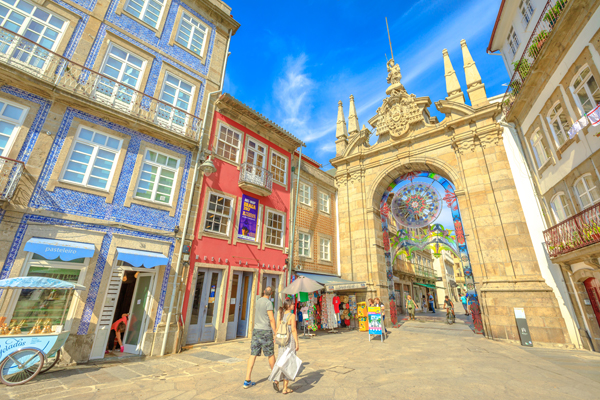
Obtaining a residency visa in Portugal is not always, but our Guide to Residency in Portugal gives newcomers an overview of the steps involved and advice from others who have already navigated the process.
- Gather the necessary documents for residency status in Portugal. This includes a valid passport, proof of address, proof of income, and a criminal record check.
- Apply for a Tax Number.
- Visit the Portuguese Tax Authority website and fill out the online application form.
- Print out the completed form and take it to the local tax office.
- Present the necessary documents to the tax office and wait for the Tax Number to be issued.
- Apply for a Residence Permit.
- Visit the Portuguese Immigration and Borders Service website and fill out the online application form.
- Print out the completed form and take it to the local immigration office.
- Present the necessary documents to the immigration office and wait for the Residence Permit to be issued.
- Register with the local town hall.
- Visit the local town hall and fill out the registration form.
- Present the necessary documents to the town hall and wait for the registration to be processed.
What tips do expats have about residency and visas in Portugal?
“I applied for a Type I Visa from the Portuguese embassy in the US. It was basically a Schengen Visa which enabled me to be in Portugal for 4 months. During this 4 months I was supposed to obtain my resident card. However, due to the large backlog, I didn’t obtain this until I was here 5 months. The process, starting with the Portuguese embassy in Washington D.C. was not really difficult but it was very stressful and took a long time. It started with an FBI background check – which took about 12 weeks. Then I had to obtain medical insurance, collect financial documents showing I had enough income to support myself without working, write a statement of why I wanted to retire in Portugal, fill out an application, have passport type photos taken and a copy of my passport notarized. The biggest challenge with this was being unable to find out exactly how much money/ income was required. After mailing all of these documents to the embassy, it look almost 5 weeks to get the approval. Then I mailed my passport to them and a request for a baggage certificate. The certificate enabled me to ship things to Portugal without paying duty. I received my passport back within a couple of weeks with my Visa attached. The resident card I just obtained is good for one year,” said one expat living in Cascais, Portugal.
“I obtained a temporary resident visa which was quite simple to obtain,” mentioned one expat in Portugal.
“We entered on my European passport and have not encountered any snags so far. The process for getting the NIF (tax number) was long and drawn out but once it was our turn, we went through everything quite easily,” commented one expat who made the move to Portugal.
“If you plan to stay in Portugal for a while, you will need a valid passport with at least six months of validity remaining. You will need to apply for a Long Term Residence Visa at the Portuguese Embassy or consulate in your home country. Depending on your length of stay, you may also need to apply for a Residence Permit once your visa is approved. Additionally, you may need a Temporary Residency Card if you plan to stay in Portugal for more than three months,” remarked one member in Portugal.
“In order to enter Portugal as a non-resident, visitors must obtain a Schengen visa. Generally, Schengen visas allow short visits of up to 90 days within a 180 day period of time. Visitors who wish to stay longer must apply for a Residence Permit. The process of applying for a Schengen visa includes submitting an application, providing biometric information, paying the relevant fees, and attending an interview. In order to apply for residency in Portugal, applicants must first obtain a Residence Permit (unless the applicant is an EU citizen, in which case they can simply register as residents in Portugal). To apply for the permit, applicants must prove a legal source of income and submit a copy of a valid passport, two passport photos, and proof of address in Portugal. The process also includes an interview and a police record check. Once the permit is processed and issued, a residence card will be sent to the applicant’s address,” commented one member living in Portugal.


